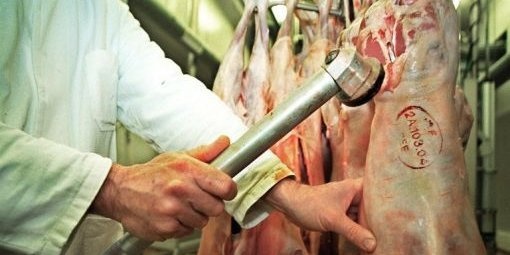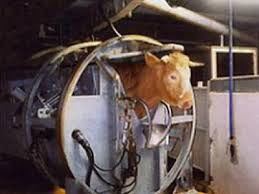What is halal?
Halal is an Arabic word meaning lawful or permitted. In reference to food, it is the dietary standard, as prescribed in the Qur’an (the Muslim scripture). The opposite of halal is haram, which means unlawful or prohibited. Halal and haram are universal terms that apply to all facets of life. These terms are commonly used in relation to food products, meat products, cosmetics, personal care products, pharmaceuticals, food ingredients, and food contact materials.
While many things are clearly halal or haram, there are some things which are not clear. Further information is needed to categorise them as halal or haram. Such items are often referred to as mashbooh, which means doubtful or questionable.
Halal simply means permitted or lawful. So when we are talking about halal foods it means any foods that are allowed to be eaten according to Islamic Sharia law.
Sharia means the ‘way’ or ‘path’. Islamic sharia law refers to the whole system of principles and rules which a Muslim is required to live by. It relates to both criminal and civil justice, and it also regulates personal and moral conduct.
The sharia is based upon the teachings of the Koran as well as the teaching and example of Muhammad: the rules of sharia exist because Muhammad either commanded or actually did what the rules require.
This means that for any food to be considered halal it must comply with the religious ritual and observance of Sharia law.
This means that food has been subjected to approved certification systems which guarantee to consumers that nothing in the food has any forbidden components. Halal certificates are issued, for a fee, by a certifying body.
The opposite of halal is haram (forbidden).
Food can be forbidden in Islam if it includes:
blood, alcohol, meat or any products from a forbidden animal, including pigs and any carnivorous animals or birds of prey meat or any products of an animal which has not been slaughtered in the correct manner in the name of Allah. Under Islamic law (sharia) it is permissible (halal) to consume items that would otherwise be termed haram so long as it is a matter of survival and not just an act of disobedience.
Here at Halal Choices we are concerned with the halal slaughter of animals such as beef, lamb and poultry. To be halal certified the animal must be facing Mecca, have its throat cut while still alive and then ritually sacrificed by a Muslim who recites a prayer dedicating the slaughter to Allah. Because the animals must be slaughtered alive, stun guns are often not an option as they can kill an animal before the heart pumps out all the blood.
Definition
In general every food is considered halal in Islam unless it is specially prohibited by the Qur’an or the Hadith . By official definition, halal foods are those that are:
Free from any component that Muslims are prohibited from consuming according to Islamic law (Shariah).
Processed, made, produced, manufactured and/or stored using utensils, equipment and/or machinery that have been cleansed according to Islamic law.
Muslims eat to maintain a strong and healthy physique in order to be able to contribute their knowledge and effort for the welfare of the society. Muslims are supposed to make an effort to obtain the best quality nutritionally. It is mentioned in a Hadith that the prayer of a person is rejected by Allah if the food consumed is prohibited (haram).
All foods are considered halal except the following (which are haram):
Alcoholic drinks and intoxicants
Non-halal Animal Fat
Enzymes* (Microbial Enzymes are permissible)
Gelatine* – from non-halal source (fish gelatine is halal)
L-cysteine (if from human hair)
Lard
Lipase* (only animal lipase need be avoided)
Non-halal Animal Shortening
Pork, Bacon / Ham and anything from pigs
Unspecified Meat Broth
Rennet* (All forms should be avoided except for plant / microbial /
synthetic – rennet obtained from halal slaughtered animal is
permissible).
Stock* (a blend of mix species broth or meat stock)
Tallow* (non-halal species)
Carnivorous animals, birds of prey and certain other animals
Foods contaminated with any of the above products
(*May be consumed if derived from halal animals.)
Halal/Haram
Foods containing ingredients such as gelatin, enzymes, emulsifiers, and flavours are questionable, because the origin of these ingredients is not known.
In the meat and poultry food industry, animals such as cows, veal, lamb, sheep, goats, turkeys, chickens, ducks, game birds, bison, venison, etc, are considered halal, but they must be prepared according to Islamic laws in order for their meat to be suitable for consumption (see below).
Fish and seafood (with the exception of crocodiles, alligators and frogs) are generally acceptable for Muslims but as always check first, as there may be a personal dietary preference or allergy. The preparation of the fish or seafood should not include alcohol (ie batter or wine, or anything considered haram).
In cases of necessity, prohibited things may become permissible (halal) for the duration of the emergency or need, as Islam puts a priority on life over death. Refer to Qur’an at Chapter 2:173 (Al Baqarah).
Islamic halal meat preparation and supervision
Halal products are derived from animals and/or poultry that have been prepared according to Islamic law under the following statement, “In the name of God – God is the Greatest/Bismillahi Allahu Akbar”.
Halal products and production are properly separated and clearly identified from non-halal products.
Life is sacred
Islam places great emphasis in the way in which an animal’s life ends, which has to be in accordance with Islamic regulations. Life is a sacred blessing of God to creation, animals as well as humans.
If the life of an animal has to be ended for human survival, then its life should only be taken in the name of God. Hence, the phrase bismillah (‘in the name of God’) must be uttered just before slaughtering an animal.
Muslims cannot consume the meat of animals that are sacrificed in a name other than God. Any animal slaughtered in the name of a person alive or dead, any deity or idol will be considered as haram and therefore it is not permissible for Muslims to consume that meat.
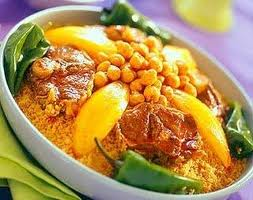
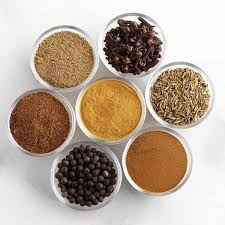
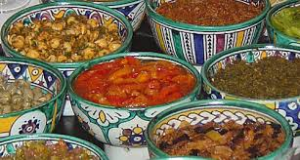
ISLAMIC SLAUGHTER
Muslims are only allowed to eat meat that has been prepared according to Islamic law. This method is often challenged by animal rights activists as ‘causing unnecessary suffering to the animal’. Muslims disagree and say that Islamic law on killing animals is designed to reduce the pain and distress that the animal suffers.
Alhaqhalal has strict rules with regards to Islamic slaughter. These rules state:
The slaughterer must be a sane adult Muslim.
The slaughterer must say the name of God before making the cut.
The name of God is said in order to emphasise the sanctity of life and that the animal is being killed for food with God’s consent.
The animal must be killed by cutting the throat with one continuous motion of a sharp knife.
The cut must sever at least three of the trachea, oesophagus, and the two blood vessels on either side of the throat.
The spinal cord must not be cut.
Animals must be well treated before being killed.
Animals must not see other animals being killed.
The knife must not be sharpened in the animal’s presence.
The knife blade must be free of blemishes that might tear the wound.
The animal must not be in an uncomfortable position.
The animal must be allowed to bleed out and be completely dead before further processing.
Some experts say that the animal killed in this way does not suffer if the cut is made quickly and cleanly, because it loses consciousness before the brain can perceive any pain: “the Islamic way of slaughtering is the most humane method of slaughter and that captive bolt stunning, practiced in the West, causes 3 severe pain to the animal”
The argument that halal slaughter is inhumane because animals are allowed to bleed to death is scientifically untrue.
An animal’s throat is cut in one swift motion with a razor sharp knife. Unconsciousness is achieved within seconds and death occurs due to cerebral hypoxia not blood loss.
Conclusion
Islam is not only a religion it is a way of life with protocols, rules and manners governing every facet of life. Since food is an important part of daily life, food laws carry a special significance. Muslims are expected to eat for survival, to maintain good health and not to live for eating. In Islam, eating is considered to be a matter of worship of God like prayer, fasting, alms-giving and other religious activities.
Guide to understanding halal foods
Introduction to halal Foods
This guide provides information about foods acceptable to the Muslim community.
Muslims around the world practice the religion of Islam. The practice of Islam includes observing
dietary laws which come from Islamic teachings. Islamic dietary laws define foods that are halal,
meaning lawful or permitted. Muslims avoid food and beverages that are haram, meaning not
permitted.
Increased awareness of culturally acceptable foods improves our ability to meet the needs of a
diverse society. It is important to take into consideration each individual’s perspective on
his/her cultural and religious practice.
The information provided in this guide will assist you when planning and serving meals, snacks
or refreshments for the Muslim community.




